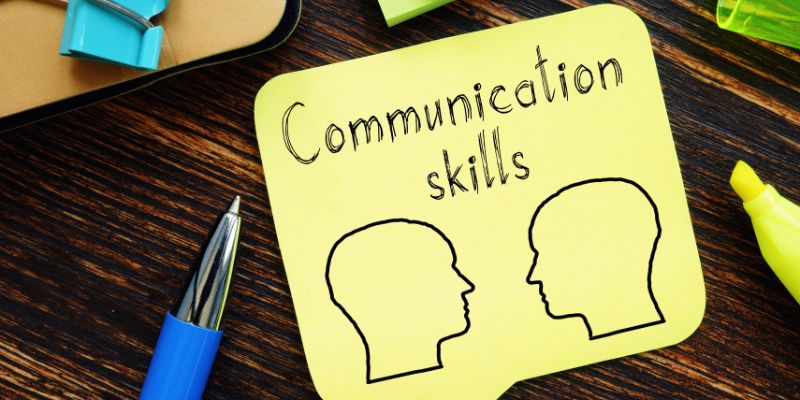Essential Life Skills for Children: Tips for Getting Youngsters Started
Children must acquire fundamental life skills to thrive in life and the classroom. These abilities enable children to handle chores, find answers, and gain confidence. Early instruction makes learning simpler. Teachers and parents are very important since they apply basic techniques. Important abilities are emotional management, communication, and judgment. Children also need to pick up time management, teamwork, and accountability.
Making learning entertaining helps kids stay involved. Little daily lessons pay off greatly over time. Growing these abilities enhances relationships and school performance. Through repetition, children grow independent and accountable. Early education helps children to change with the times of life. Teachers and parents should concentrate on methodical teaching. The correct method ensures successful and fun development of skills.
Essential Life Skills Every Child Needs
To thrive in both life and the classroom, children require life skills. These abilities enable kids to develop into responsible, confident people:
Communication Skills
Good communication lets children convey ideas and emotions. They have to learn courteous speech and listening. Encouraging questioning and idea-sharing helps children grow confident. Reading and storytelling expand vocabulary. Word games improve language abilities. Children who speak find friends. Prominent polite dialogues are crucial. Learning kind words like "please" and "thank you" helps their social contacts and connections.

Decision-Making Skills
Making sensible selections guides youngsters into responsibility. Parents can let children pick snacks or clothing. It imparts lessons about consequences. Problem-solving techniques help enhance decision-making ability. Inquiring, "What do you believe will happen?" develops critical thinking. Talking about choices sharpens logical ability. Children who learn from mistakes develop better. Decisions made on their own equip children for maturity.

Emotional Control and Happiness
Children who learn to control their emotions will be cool under pressure. Deep breathing and counting exercises help to lower tension. Regarding emotions, talking helps to prevent emotional outbursts. Children who are resilient bounce back from mistakes. Promoting optimistic thinking increases drive. Emotionally, parents should help their kids. Developing better control of irritation and rage strengthens bonds. Children with emotional control are stronger, more patient, and more sympathetic since they equip themselves for the ups and downs of life.
Responsibility and Independence
Children who learn responsibility become autonomous—simple chores like housekeeping foster responsibility. Doing housework gives one confidence. One has to teach dependability and honesty. Giving responsibility motivates constant work. Children who have clear expectations will grasp their responsibilities. Organizing personal items helps one to develop discipline. Children who feel accountable grow to have great work ethics. Early responsibility training helps kids be ready for their obligations at home, school, and job.
Time Management Skills
Time management keeps children orderly. Scheduling lessons enhances discipline. Using planners lets kids monitor chores. Giving activities top priority helps one to be focused. Creating playtime and homework schedules guarantees balance. Learning deadlines and obligations helps one develop responsibility. Timers let kids better control their time. Timeliness in completing assignments fosters self-control. Good time management helps children reach goals efficiently while preserving a disciplined and balanced existence, preparing them for school and adulthood.
Social Skills and Teamwork
Social skills enable children to engage in positive interactions with others. Learning compassion fosters friendships. Teamwork in group activities fosters cooperation. Turning around and sharing helps one grow patient. Resolving conflicts improves bonds. Role-playing helps one develop social confidence. Apologizing and forgiving help one develop understanding. Good social skills enable children to operate in groups. Good relationships help one succeed both personally and professionally.
Money Management Skills
Early financial responsibility is developed by understanding money. Children who learn to save and spend will be better decision-makers. Allowances explain budgeting. Differentiating needs from wants sharpens decision-making. Piggy banks promote saving behavior. Getting money from duties teaches worth. Knowing money helps one avoid needless expenditure. Acquiring financial responsibility guarantees future freedom. Children who learn good financial management will grow to have strong habits, be ready for maturity, have financial stability, and be sensible in their future spending.
Problem-Solving Skills
Children with strong problem-solving abilities can properly face obstacles. Developing critical thinking enhances decision-making. Let kids do little tasks to encourage independence. Open-ended questions hone logic. Solving difficulties stepwise helps to simplify them. Strategic games and puzzles improve cognitive ability. Investigating several answers stimulates originality. Regular problem-solving exercises equip kids for challenges in the real world. Children who develop good problem-solving skills can boldly meet obstacles in their personal lives, relationships, and education.
Self-Care and Hygiene
Self-care instruction keeps children healthy. Good hygienic practices help avoid disease. Cleanliness is promoted via bathing and tooth brushing. Eating healthily boosts immunity. Handwashing stops infections. Dressing for yourself helps one feel confident. Regular exercise raises fitness levels. Good sleep encourages development. Children stay involved when hygiene is made enjoyable. Skills in self-care help one always be well. Early teaching of self-care guarantees that youngsters grow to have good habits and self-discipline for life.
Adaptability and Flexibility
You have to be flexible in life. Helping children welcome change increases their resilience. Errors turn into teachable moments. Learning new sports increases self-confidence. Positivism helps to lower stress. Solving problems helps one be flexible. Well-adjusted children approach problems more skillfully. Promoting interest helps one be flexible. Learning to welcome change helps one solve problems. Children with strong adaptability abilities will be able to negotiate the uncertainty of life, grow patient, and remain motivated despite obstacles and unanticipated events in their surroundings.
Conclusion:
Early life skill instruction helps youngsters develop into confident, responsible adults. Two very important players in this process of learning are parents and instructors. Little everyday tasks help to enhance accountability, communication, and decision-making. Resilience grows by motivating emotional control and problem-solving. Teaching youngsters time management and teamwork helps them be ready for difficulties ahead. Learning self-care and financial management will enable children to grow independent. Children who acquire these abilities thrive in both personal and academic spheres. Parents should concentrate on making education enjoyable and interesting. Little actions now add up to great achievement down the road.












